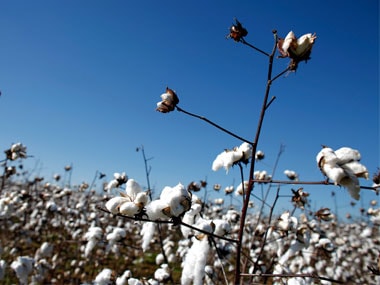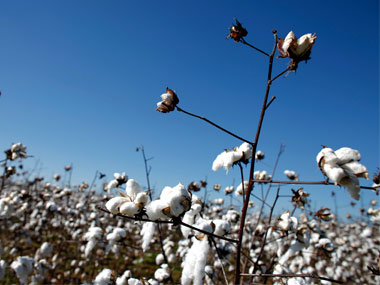In the following article, we point out the blatant inaccuracies in the story by Indra Shekhar Singh titled “Thanks to Monsanto’s reckless practices, Bt toxins in adulterant cottonseed oil may be seeping into your samosas” published on _Firstpost_ on 29 October, 2017. Allegation: Bt products are unsafe Fact: Experts and regulatory authorities worldwide recognize GM foods and crops as being safe. In fact, experts estimate more than one trillion meals containing ingredients from biotech crops have been consumed over the last decade with no reliable documentation of any food safety issues for people or animals. Biotech crops are being successfully and safely cultivated globally for over 15 years. Ag biotech products are studied much more extensively than any other plant product in the world, and provide equal or greater assurance of safety of these products compared to conventional plant varieties. UN, WHO, FAO, EFSA, Royal Academy of Sciences, National Academy of Sciences, French Academy of Medicine, British Medical Association all concluded that Bt crops are as safe as conventional crops. Twenty-five Nobel Prize recipients and more than 3,400 prominent scientists have also expressed their support for plant biotechnology as a “powerful and safe” way to improve agriculture and the environment. Over 60 countries including Japan, USA, Canada, Mexico, South Korea, Australia, Philippines, New Zealand, the European Union & China have well-established and functional regulatory systems. It is only after stringent biosafety (food, feed and environment) and efficacy assessments from these bodies that biotech crops are approved for commercial cultivation, import for food-feed use and environmental release. [caption id=“attachment_4191433” align=“alignleft” width=“380”]  Representational image. Reuters[/caption] Plant biotech products are well regulated, extensively studied & approved by governments providing equal or greater assurance of safety as compared to conventional varieties. In India too, public and private sector institutions are researching on crops like rice, mustard, peas, cotton, tomato, potato, cabbage, chilly, brinjal, groundnut etc. India has one of the most robust regulatory systems in the world. The Indian regulatory system has evolved taking into cognizance the regulatory systems from around the world and is compliant with Codex Alimentarius Commission created by UN FAO and WHO to develop food standards, guidelines and related texts for safety testing of biotech crops. The regulatory system is comparable with other nations that approve biotech crops for cultivation and import. All research and regulatory trials are conducted as per the regulatory guidelines, monitored strictly by the Indian regulatory authority- appointed Monitoring and Evaluation Committee and Central Compliance Committee who ensure trial protocols including compliance are followed and required data parameters are recorded and maintained. In addition, several research and regulatory trials are also conducted with agriculture institutes and universities. Allegation: All tests and parameters used to declare Bt cotton safe have been provided by Monsanto itself than independent, scientific, peer-reviewed source Fact: We would like to state that in his arguments and effort to prove his independent analysis on the subject of GM technology, the author of the article mentioned above has shown his inclination towards the section of people who claim that this technology is bad and is detrimental to the environment. Further in the process he has also questioned the regulatory process by demeaning the role of Genetic Engineering Appraisal Committee, a statutory body set up under the (Indian) Environment Protection Act, 1986. The Indian Regulatory System is compliant with Codex Alimentarius Commission created by UN FAO and WHO to develop food standards, guidelines and related texts for safety testing of biotech crops, and is comparable with other nations that approve biotech crops for cultivation and import. All research and regulatory trials are conducted as per the regulatory guidelines, monitored strictly by Indian regulatory authority- appointed monitoring and compliance Committees who ensure trial protocols are followed and required data quality are maintained. We would like to unequivocally clarify that Bt cotton was introduced in India in 2002 after securing the requisite approvals as mandated by India’s regulatory agencies. If the author is questioning this, then he is questioning the whole scientific process where various stakeholders are also involved. Allegation: GM foods lead to health risks Fact: Not so, certainly not to millions of farmers in over 29 countries who grow them on over 160 million hectares, the 21st year of commercialization of these crops. This is essentially a 94-fold increase in hectarage, from 1.7 million hectares in 1996. This makes GM crops the fastest-adopted crop technology in the history of modern agriculture. Here is an ISAAA report on adoption of biotech crops worldwide. Farmers worldwide, including small-scale farmers and large farmers are rapidly adopting biotech crops due to the benefits of the technology. Adoption has increased year-on-year every year since biotech crops first were introduced in 1996, especially with resource poor farmers in the developing world. Over 55 countries globally have granted regulatory approvals for biotech crops for farmer planting and/or import of produce from biotech-enhanced seeds since 1996 including USA, Canada, Australia, Brazil, China, India, Philippines, Mexico, Japan, Korea, the European Union, New Zealand, and others. Not one case of purported ill effects of consuming these crops has ever been reported in over two decades. Such an attitude of scouring for research material for words of caution and twist them beyond recognition has led to a fear psychosis that is unfounded on facts. To those who are ideologically blindfolded, no amount of statistics will be convincing. Allegation: Competition Commission of India has dragged Monsanto to court the anti-competitive and unfair business practices Fact: Mahyco Monsanto Biotech (India) Pvt. Ltd. (MMBL), the JV between Mahyco and Monsanto, sub-licenses the Bt-cotton technology to over 46 Indian seed companies, which in turn provide farmers a choice of over 800+ hybrids. MMB and some of the sub-licensee seed companies are locked in a bilateral dispute, as these companies have withheld payments legitimately due to MMB, violating long-standing bilateral contracts. The CCI investigations against MMB and its affiliates have primarily been instigated by a few of these disputing sub-licensees. Based on complaints filed by these disputing seed companies, the Competition Commission of India (CCI) has ordered investigation of certain allegations against MMB and its affiliates. We continue to believe that these allegations are baseless and that Monsanto will be exonerated of these charges in due course. Monsanto continues to co-operate with the CCI in the investigation, but has also sought clarity over the CCI’s jurisdiction in the Delhi High Court. It is also pertinent to note that most of the disputing seed companies have settled their outstanding amounts and have withdrawn their contentions post discussions with MMB. From the article mentioned above, it appears that the author prioritises his ideology over sound scientific evidence. The unsubstantiated allegations misrepresented as facts in the story not only misrepresent the technology, but also causes damage to our reputation. More importantly, it blindsides readers about facts that will help them make an informed choice. The author is Lead, Corporate Communications at Monsanto India
The allegations made against Monsanto over lack of safety are completely unsubstantiated. Experts and regulatory authorities worldwide recognize GM foods and crops as being safe.
Advertisement
End of Article


)




